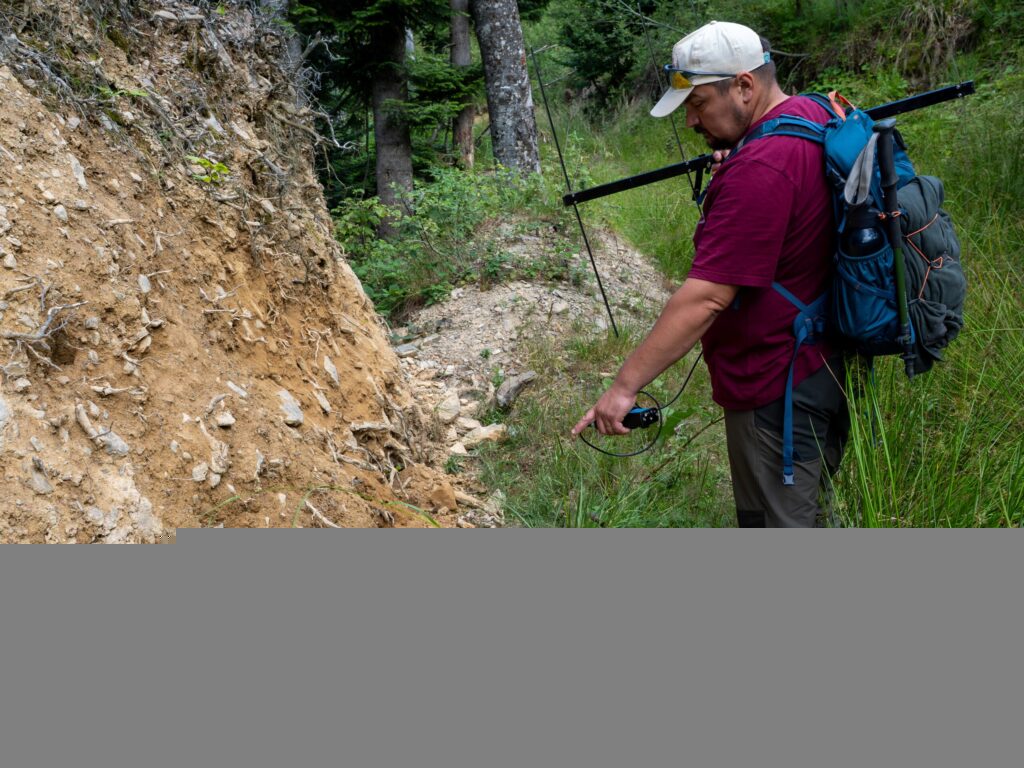On July 31st, we mark International Rangers’ Day – a day dedicated to those who, alongside ecologists, biologists, and other specialists, actively contribute to protecting nature and biodiversity.
Established in 1992 by the International Ranger Federation, the day is a well-deserved recognition of the efforts of those who work quietly but are deeply involved in the field. From monitoring wildlife to helping local communities co-exist with animals, rangers play a vital role in maintaining the balance between man and nature. With professionalism, courage, and dedication, they serve as the essential link between conservation, science, and the community.
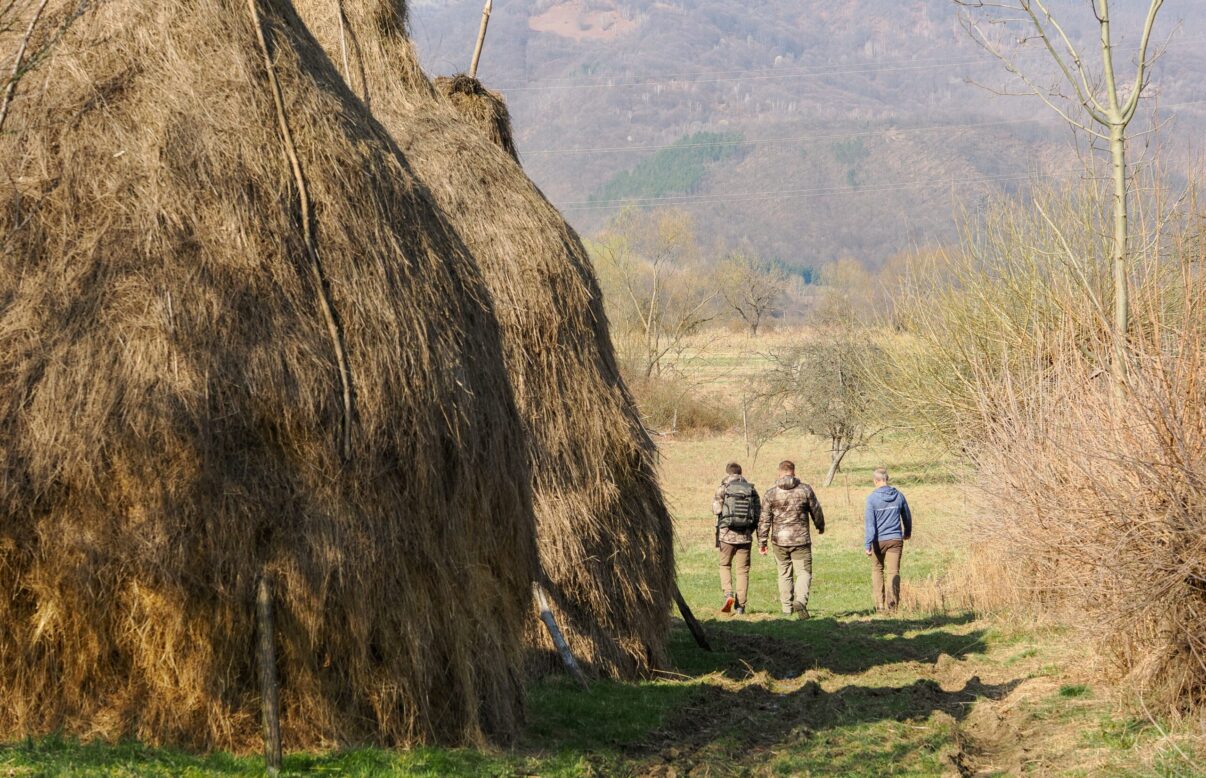
Rewilding Romania’s rangers: between bison, nature, and people
In the Țarcu Mountains, Rewilding Romania’s team of rangers is on the frontline of the return of the bison into the wild. Often, their work is carried out in silence, far from the public eye, and extends beyond monitoring a species. Rangers are constantly patrolling areas where coexistence events between humans and bison may arise. Using GPS collars, digital apps, and specialised tools, they track wild animals’ movement and intervene where necessary to prevent or mitigate possible incidents between humans and bison, maintaining the balance.
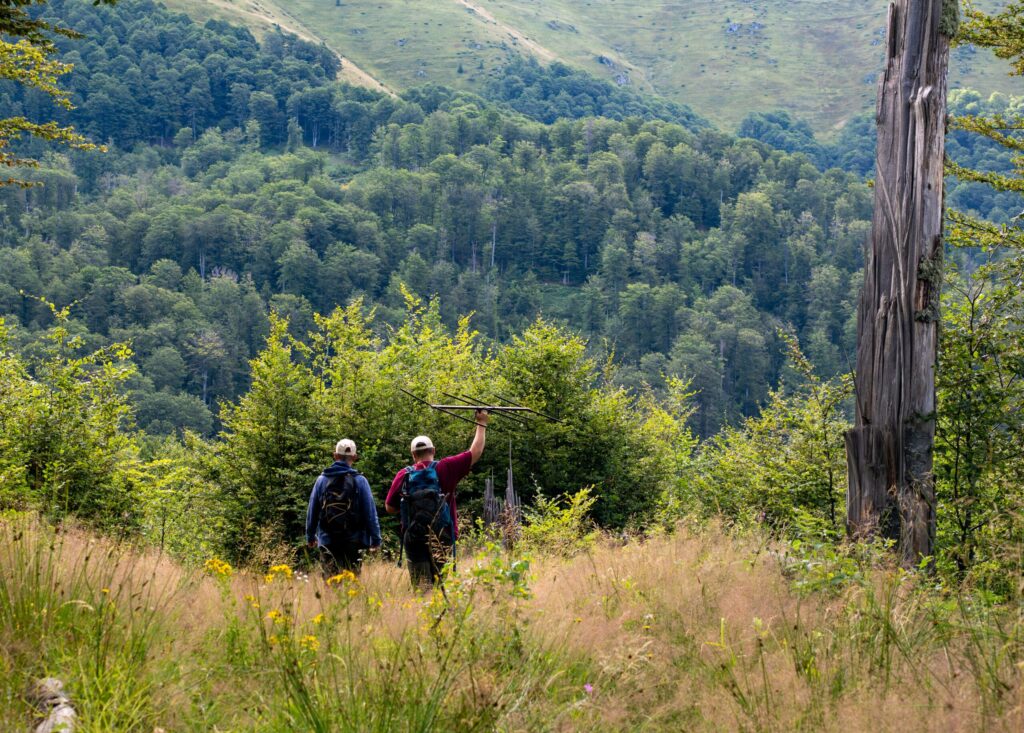
Managing human-bison coexistence with the help of canine units
Last winter, our team implemented an innovative and effective method to manage the presence of bison near agricultural areas: the use of specially trained Border Collie dogs. This breed is renowned for its intelligence, discipline, and ability to work harmoniously alongside humans, making it a reliable method for achieving a peaceful coexistence. The rangers and their canine team have successfully guided the bison from areas bordering settlements to their natural habitat.
In addition to its proven effectiveness, this approach respects the natural behaviour of animals and helps maintain a balanced relationship between humans and nature. The collaboration with the canine team has been a resounding success, and we will continue to develop and refine this method to make it even more effective in the future as part of our strategy to promote coexistence between local communities and wildlife.
Rangers – a bridge between nature and community
In addition to monitoring and conservation activities, the rangers of the Rewilding Romania team play a crucial role in fostering a strong bond between local communities and wild nature. Being locals themselves, the rangers bring a deep knowledge of the area, its people, and the specifics of the places. This grounding in the reality of the community is a decisive factor in increasing trust in Rewilding Romania’s mission and activities.
The Rangers actively participate in educational activities, workshops for students, camps, volunteer activities, public meetings, and local events, contributing to the authentic and understandable transmission of rewilding values to the community. At the same time, the ranger team is in constant dialogue with local people, responding promptly to requests, explaining wildlife behaviour, and working to prevent tense events between people and bison. Where necessary, they install electric fences to protect crops or to prevent animals from entering local households.
Through their active involvement and open attitude, the rangers have become a living example of coexistence, exemplifying the partnership between nature conservation and rural life, which helps strengthen a network of local support for species reintroduction and ecosystem regeneration. Their work is discreet but constant, representing a cornerstone in the development of communities where people live in harmony with wildlife and actively support nature’s recovery.
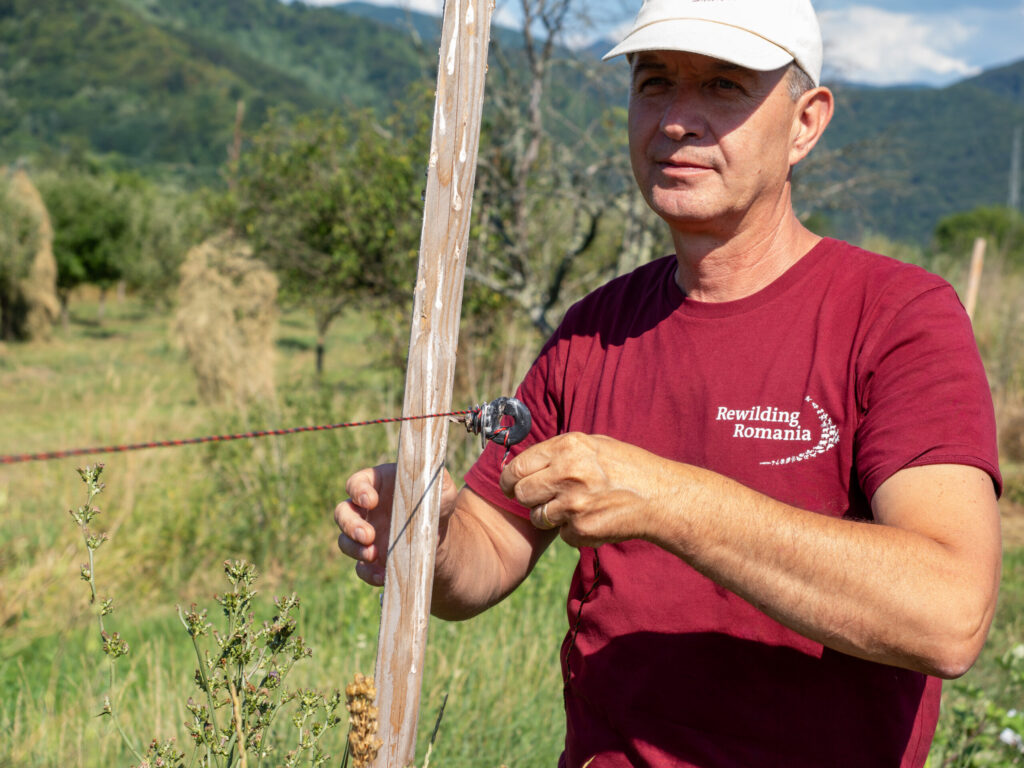
Reintroduction of bison into the wild – field work, passion, and dedication
The reintroduction of bison in the Țarcu Mountains is not just a symbolic moment, but rather the culmination of intense and coordinated fieldwork. Behind each release into the wild is a team of local rangers who rigorously prepare all the necessary conditions: regular repairs to the acclimatisation pen, construction of the forest road for access by trucks transporting the animals, and creation of a safe environment for both the bison and the community. All of these steps are essential to ensure the smoothest possible transition for the animals, which often come from captivity and are released into the wild. Our rangers are on the ground from day one to the last day, coordinating every detail.
Monitoring and Collaboration with National Parks
In the Țarcu Mountains, where over 200 bison roam freely, rangers regularly carry out field transects — planned routes designed to collect valuable data on the distribution, activity, and ecological impact of wildlife.
The data gathered forms the foundation of specialised research, such as genetic, dietary, and landscape-use studies. This monitoring work not only helps assess the success of reintroductions but also allows us to better understand how nature regenerates with the help of key species like the European bison.
In addition to bison monitoring in the Țarcu Mountains, for the past two years, Rewilding Romania has been collaborating with Retezat National Park as part of a wildlife monitoring program. Each year, mixed teams of rangers install around 60 camera traps, which collect valuable data on the presence and behaviour of various wild animal species.
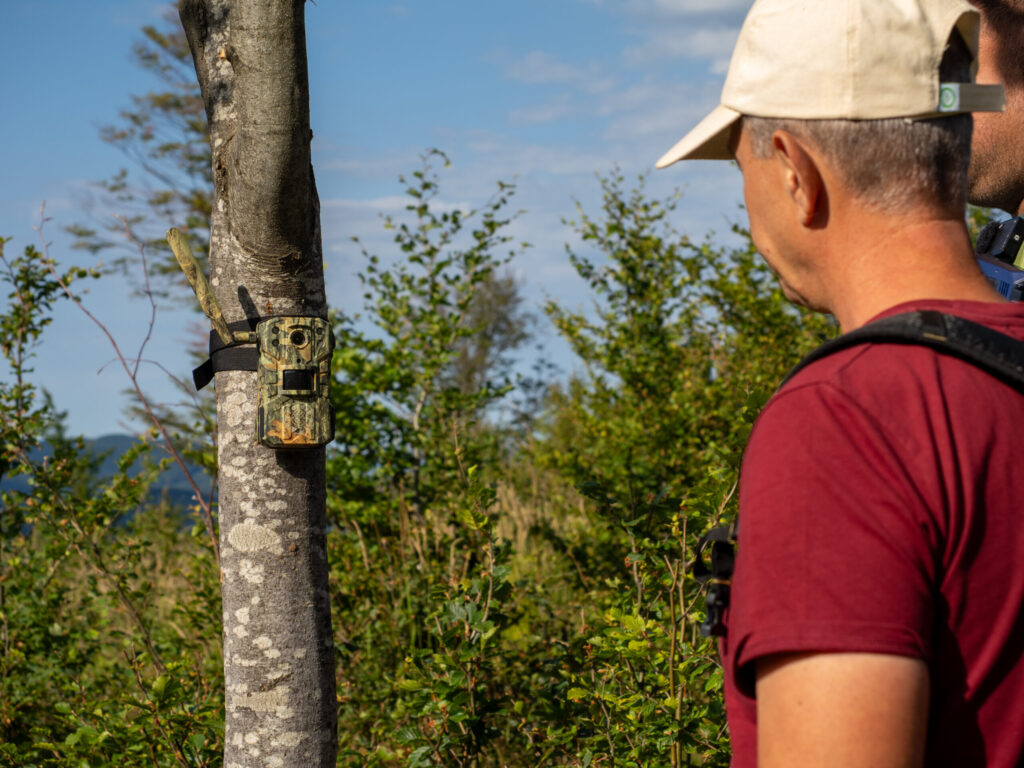
Education and Community Involvement
Rewilding Romania rangers are not only professionals in the field, but also members of the local communities in the Țarcu Mountains area. They manage to create genuine, lasting, warm relationships with local people precisely because they are part of the communities, share similar concerns, understand their needs, and the rhythm of local life. Present at community meetings, in schools, at local events, or at Rewilding camps, rangers create real bridges between nature conservation and the daily lives of local people. Whether they are discussing the behaviour of bison, installing electric fences, or inviting young people to participate in educational activities, these Rewilding team members are valuable ambassadors for nature in the community.
Through personal example, openness, and perseverance, rangers contribute to a deeper understanding of Rewilding values and convey the idea that nature should not just be protected, but integrated into the identity of a place.
Getting ready for the European Ranger Congress
From October 6 to 10, 2025, Romania will host the European Ranger Congress in Cheile Grădiștei. The event is organised by the European Ranger Federation, with the support of the Romanian Ranger Association. Rewilding Romania is honoured to be an official partner of this congress.
The congress is much more than a simple reunion; it is an opportunity to make the ranger profession known and recognised, as well as the essential role it plays in nature conservation and the return of wilderness. We invite rangers from across Europe and our colleagues from the Rewilding Europe network to attend, share experiences, and build new bridges for the future of conservation.
Understanding nature to protect it better
In a world where nature is facing increasing pressures—from habitat loss to climate change—it is essential that we have people trained to protect it. Rangers play a valuable role in these efforts. They are on the ground every day, monitoring, intervening, and collaborating with local communities to actively help protect species and ecosystems.
At Rewilding Romania, their work is essential to the success of any conservation project. Without rangers, returning nature to its wild state in these areas would be significantly more difficult. Their role is not just limited to surveillance; they bring important information from the field, support environmental education, and help build a better relationship between people and nature.
We are proud of our ranger team and the professionalism with which they do their job. We recognise their dedication and constant efforts. This is why it is essential to invest in their training, in the necessary equipment, and in creating a framework that allows them to carry out their work in the best possible conditions. They are a key element in our long-term conservation efforts.
